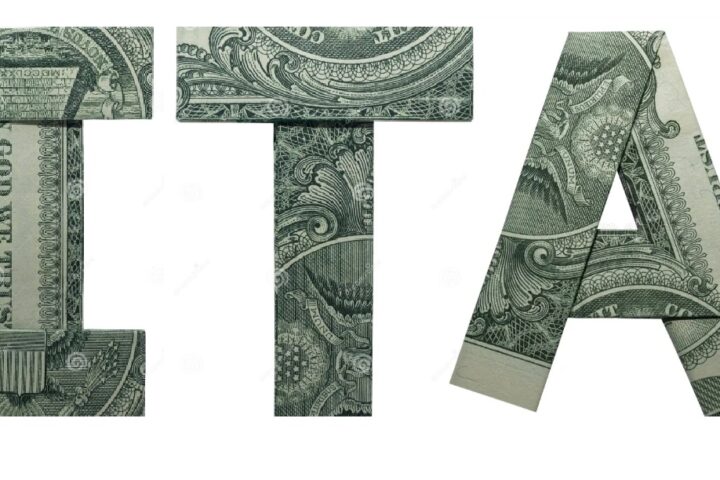Three Possible Ways to Deduct Your Dog or Cat
When we ask our clients about dependents, a common response is "that depends, can I deduct my dog." Dogs, cats, and other household pets are expensive. It costs an average of $1,270 to $2,800 a year to own a dog.
Unfortunately, the expenses you incur for a family pet that provides you only with love and companionship are never deductible: they are purely personal expenses.
When Is It Possible to Deduct My Dog?
But it is possible to deduct the expenses for a dog, a cat, or another animal if the animal qualifies as a
- medical expense,
- business expense, or
- charitable deduction.
Deducting Your Pet as Medical Expenses
The costs of buying, training, and maintaining a dog or another animal qualify as a deductible medical expense if you:
- use the animal primarily for medical care, and
- would not have paid the expenses but for the disease or illness involved.
Service Animals
You can deduct as medical expenses your costs for service animals. A service animal is any guide dog, signal dog, or other animal individually trained to assist people with disabilities. Service animals are working animals, not pets. Examples of tasks performed by service animals include
- guiding people who are blind/low vision,
- alerting people who are deaf/hard of hearing to sounds,
- pulling a wheelchair,
- carrying and picking up things for people with mobility disabilities,
- alerting and protecting people who have seizures,
- reminding people with mental illness to take prescribed medications, or
- calming people with post-traumatic stress disorder during an anxiety attack.
Most service animals are dogs, but they don’t have to be. For example, the IRS allowed a medical deduction for a cat used by a hearing-impaired person, where the cat was trained to respond to unusual sounds in an instantaneous and directional manner. Service animals are usually professionally trained, but they don’t have to be.
People with disabilities have the right to train the animal themselves and are not required to use a professional service animal training program. You should keep records showing the training the animal receives. Animals such as these come within the definition of “service animal” for purposes of the Americans with Disability Act, and their owners are legally entitled to take them into public places with them so long as the animal is under their control.
There is no official federal or state registration for service animals, but some local governments, colleges, and other entities maintain voluntary registries. Such registration is not required to deduct service animal expenses, but it can’t hurt.
Emotional Support Animals
Emotional support animals help individuals suffering from mental and/or emotional disabilities. They are not the same as service animals because they are not trained to perform a specific task for a person with a disability.
Emotional support animals are more difficult to deduct than service animals because they can seem little different from regular pets. But the IRS has stated that they are deductible provided that:
- you have the animal primarily to help with a mental and/or emotional disability, and
- you wouldn’t otherwise have the animal.
The animal should be prescribed (or at least recommended) by a licensed health care provider—a licensed therapist, a psychologist, a psychiatrist, or another licensed physician. The use of the animal should be part of your mental health treatment plan.
Ideally, you should obtain the animal after a medical professional advises you to get one. If the animal is a dog, it can be any age and any breed. But emotional support animals don’t have to be dogs.
Obtain a letter of medical necessity from the health professional that includes information about your disability and the ways the animal will help you. For example, owning the animal might ease your anxiety or give you a focus in life. Keep the letter on file; there is no need to file it with your tax return.
The animal should receive appropriate training for a support animal. You can train it yourself. Document the training it receives.
Deducting the Medical Expenses
If you operate as a business, and you have a medical reimbursement plan or work for a business that has a medical reimbursement plan, you may qualify to deduct 100 percent of your pet expenses or have them reimbursed. For details on business plans that may work, click on the following links:
- For self-employed or single-member LLC with your spouse as your only employee, or C corporation owner with no employees, click Updated Blueprint for Employee-Spouse 105-HRA (Health Reimbursement Arrangement).
- For a business with two or more employees and fewer than 50, click Get Your QSEHRA Health Plan in Place Now.
- For a business with two or more employees, click ICHRA: Game Changer for Small Business Health Benefits.
If none of these fit your situation, you may pay your medical pet expenses with tax-free withdrawals from a
- health savings account, or
- flexible spending account.
If none of the above work, your next choice is as an itemized personal deduction on Schedule A of your Form 1040. It can be difficult to take this deduction. Due to the substantial standard deduction available today, only about 10 percent of all taxpayers are able to itemize. Additionally, medical expenses are deductible only if, and to the extent, they exceed 7.5 percent of your adjusted gross income. This rule greatly limits the medical deduction.
Can I Deduct My Dog as a Business Expense?
Expenses for a dog or another animal are deductible as a business expense if they are ordinary and necessary and directly related to your business. To be deductible, the animal must serve a legitimate business purpose. Some examples follow.
Guard Dogs
Guard dogs for a business location can be a legitimate business expense, just like other security-related costs. For example, the court noted in the Cox case that the IRS did not contest the deductions claimed for a guard dog by the owner of a car repair shop.
The guard dog should be trained—whether by you or by a professional trainer. Ideally, the dog should be an appropriate breed for guarding purposes, such as a Rottweiler, German shepherd, or Doberman pinscher. Don’t try to deduct a small dog like a Chihuahua as a guard dog.
If you have an office in your home, can you deduct a guard dog? Probably, if you keep valuable inventory, equipment, files, or other items in your home office. But don’t try to pass off your family pet as a home guard dog. If your dog performs both guarding and family pet duties, you should keep track of how much time it spends on each and deduct only the business percentage of your dog expenses.
Pest Control
Pest control is a problem for many types of business. The Tax Court, in a precedent-setting case, recognized that using cats is one way to combat pests. In this case, the court permitted the owners of a junkyard to deduct the cost of cat food they left out to attract feral cats that took care of snakes and rats on the property. To qualify for this deduction, document your need for pest control at your business location, and make sure to use a cat or cats suitable for the purpose.
Aquariums
Office aquariums are deductible as a business expense, the same as depreciable qualifying artwork or other decor that helps make an office more visually appealing. The aquarium should be in a location frequented by customers or clients (such as a reception area) or by employees.
You can not deduct a home aquarium.
Charitable Deduction
If you foster dogs, cats, or other animals in your home, you may be able to take a charitable deduction for the reasonable expenses you pay out of your own pocket, such as pet food expenses and veterinary bills. But you may not deduct the value of your time you spend fostering animals or the value of donating space in your home for this purpose.
To qualify for this deduction, you cannot foster animals on your own. You must do so on behalf of a Section 501(c)(3) charitable organization. Your unreimbursed expenses can then be deductible as a charitable contribution because they are “made incident to the rendition of services” for the organization.
In the leading case, a woman spent more than $12,000 to pay for food and vet bills for feral cats she fostered in her home for a charity that specialized in the neutering of wild cats. The Tax Court held that the expenses were deductible to the extent properly substantiated. The woman satisfied the incident-to-rendition-of-services requirement because she had a strong association with the charity: she regularly volunteered for it, worked closely with its volunteers, and was encouraged and directed by the charity that oversaw her work.
Since this is a charitable deduction, you may claim it only as an itemized personal deduction on Schedule A. It is also subject to special substantiation requirements. You must keep track of your expenses and obtain a contemporaneous written acknowledgment from the charitable organization if those expenses exceed $250.13
Expenses You Can Deduct
If a dog, a cat, or another animal is deductible, you can deduct costs for
- food,
- bedding,
- boarding,
- training,
- grooming supplies,
- veterinary care,
- medication, and
- pet insurance.
The cost of the animal is also currently deductible if the animal qualifies as a business, medical, or charitable deduction.
If you are deducting the cost as a business expense, you can use Section 179 expensing or the de minimis safe harbor deduction (limited to $2,500). Alternatively, you can depreciate the cost over seven years.
Related posts about unusual tax deductions:
Rental Property Owners: Deduct Old Roof
Can You Write off More Than One Vehicle?
Home-Office Deduction: What if I Have a Pool Table in the Office?
Can I Write Off My Gambling Losses?
Small Business Tax Services
As an expert in small business tax services and tax consulting Ken-Mar Tax eats, sleeps and breathes small business tax strategies. Being an enrolled agent allows founder, Ken Weinberg, to represent you to the IRS - something only a CPA, tax attorney and Enrolled Agent can do. EAs are the only federally licensed tax practitioners who specialize in taxation and also have unlimited rights to represent taxpayers before the IRS. It also means he is continuously being updated on the new IRS tax codes and taking classes from the IRS that provide guidance on how to file returns so that they are not "flagged."
When you get your taxes prepared by Ken Mar Tax you also have the option to purchase the Tax Audit Protection Plan to avoid the extra costs of paying for audit representation. If you are audited by the IRS, State of Ohio or local taxing authorities, Ken-Mar Tax will meet with the taxing authorities on your behalf to negotiate a settlement for you. The fee covers all costs up to the Appeals level, including up to 15 hours of correspondence with the auditing party – either the IRS, State of Ohio or locality.








